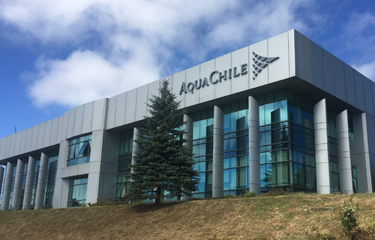AquaChile prepared to abandon national park concessions in Chile

AquaChile, Chile’s largest salmon farmer, is preparing to abandon the concessions it has in national parks, the head of Chile’s Undersecretary of Fisheries and Aquaculture (Subpesca), Julio Salas, said at the Aqua Forum seminar in Puerto Montt, Chile on 9 November.
Removing salmon farmers from protected areas is a priority of Chile President Gabriel Boric. Recently, there has been progress in this effort as a result of coordination between Chile's Undersecretaries of the Armed Forces, of the Environment, and of Chile's Department of Fisheries and Aquaculture, which are the public entities with the greatest regulatory and decision-making powers regarding aquaculture activity, Salas said.
“For several months we’ve had conversations with two of the three salmon companies present in national parks, and today I can say that one of them, AquaChile, is already in a position to leave all its concessions in national parks,” Salas said. “This has been possible with an effective public-private dialogue, without implying the expansion of [AquaChile’s] presence in other protected areas of any kind.”
The move away from salmon farming in protected areas is one of three initiatives Subpesca is looking to advance, the other two being the draft of a new aquaculture law and holding an open dialogue with all the actors in the sector's value chain to address the future strategy for sustainable aquaculture development.
Regarding the new aquaculture law, the government expects to present a draft during the fourth quarter of 2022, but it will be developed apart from a new fisheries law, which is also being drawn up, Salas said. He said the reason for the separation was both technical, since they have different issues and realities, and ethical, as the legitimacy of the current legislation on fishing has been “called into question owing to the undue intervention of private interests in public deliberation.”
Salas was referencing the controversial fishing law, enacted in 2013 that gave four large-scale private fishing companies control of 92 percent of Chile’s marine resources – much to the consternation of small-scale, artisanal fishers along the country’s expansive 2,600-mile coastline.
The law set quotas in a move to address overfishing, which at the time was an issue negatively affecting horse mackerel populations. However, in a situation commonly referred to as the “Corpesca case,” named after one of the four large companies that benefitted from the fishing law, a number of parliamentarians were accused of accepting bribes to influence the writing of the bill to favor the larger seafood firms. The CEO of Corpesca at the time, Francisco Mujica, was brought up on charges for bribery and repeated tax crimes. The event marked the first oral trial held in Chile for illegal financing of politics.
However, the questioning of that law is unrelated to aquaculture regulations, where there have been no accusations of bribery, Salas said.
Addressing issues in the fishing and aquaculture sector has been prominent on the agenda of Chilean President Gabriel Boric, who took office in March 2022. In his first address to the nation in June 2022, he vowed Chile would look to replace its existing fishing laws, while also strengthening environmental stewardship of its exclusive economic zone. Hailing from Chile’s southernmost region of Magallanes, where the salmon-farming sector has been expanding its reach, Boric has also said he is considering enacting a moratorium on the farmed salmon sector that would halt its expansion in the country.
However, the issue of salmon concessions predates Boric’s administration. In January 2022, before the president had taken office, Subpesca outlined to the senate the government’s plan to relocate some salmon-farming concessions, with an emphasis on those located inside the Alberto de Agostini National Park.
Salas said that the government is interested in collecting feedback from the aquaculture sector in order to create a regulatory framework that enable the industry's long-term development “without leaving aside the conversation about the management measures that can make a difference in the short- and medium-term.” This initiative is expected to be launched during the first quarter of 2023.
Salas acknwoledged his approach to the industry was more conciliatory than previous communications from the Boric administration.
“The public and private sectors want to advance in ensuring that this activity – so important for the economy and employment of our country – develops in a much more sustainable way, through effective legal regulation and with more-efficient sectoral public management,” he said.
Following copper, farmed salmon is Chile's second-biggest export by value. Salmon and trout exports from Chile reached USD 4.77 billion (EUR 4.76 billion) during the first three quarters of 2022, up 31 percent compared to the same nine months of 2021. If the trend seen during the first three quarters of the year were to continue, the country will far surpass USD 6 billion (EUR 6 billion) in salmon and trout shipments for 2022, compared to the USD 5.18 billion (EUR 5.17 billion) value exported in 2021, thanks to steadily increasing demand after the sector coming out market disruptions caused by the COVID-19 pandemic.
Photo courtesy of AquaChile






Share